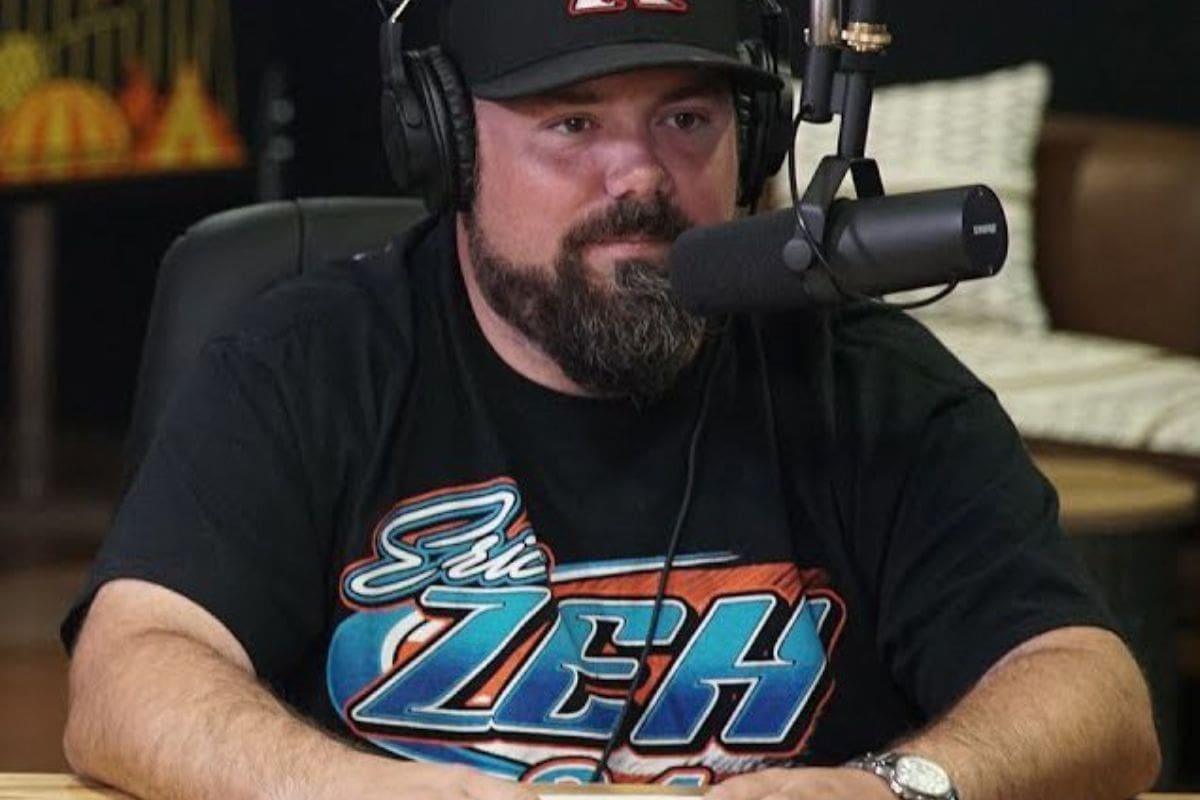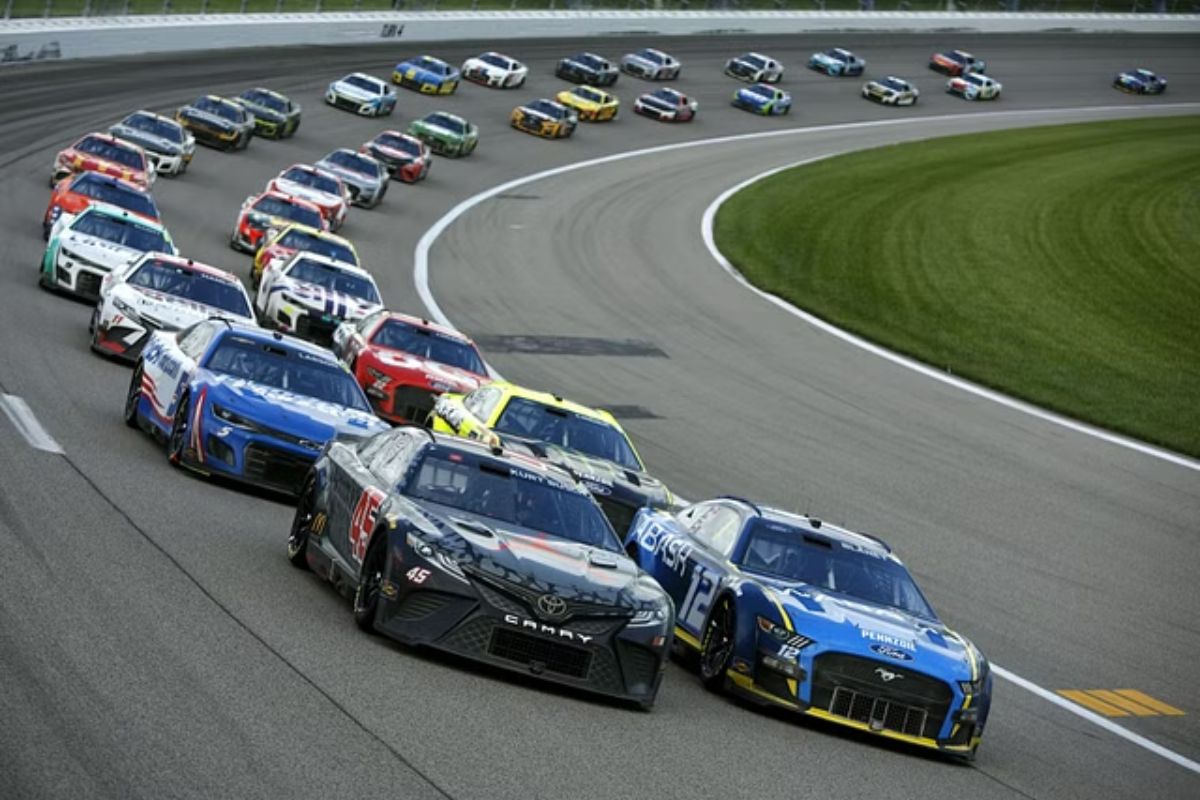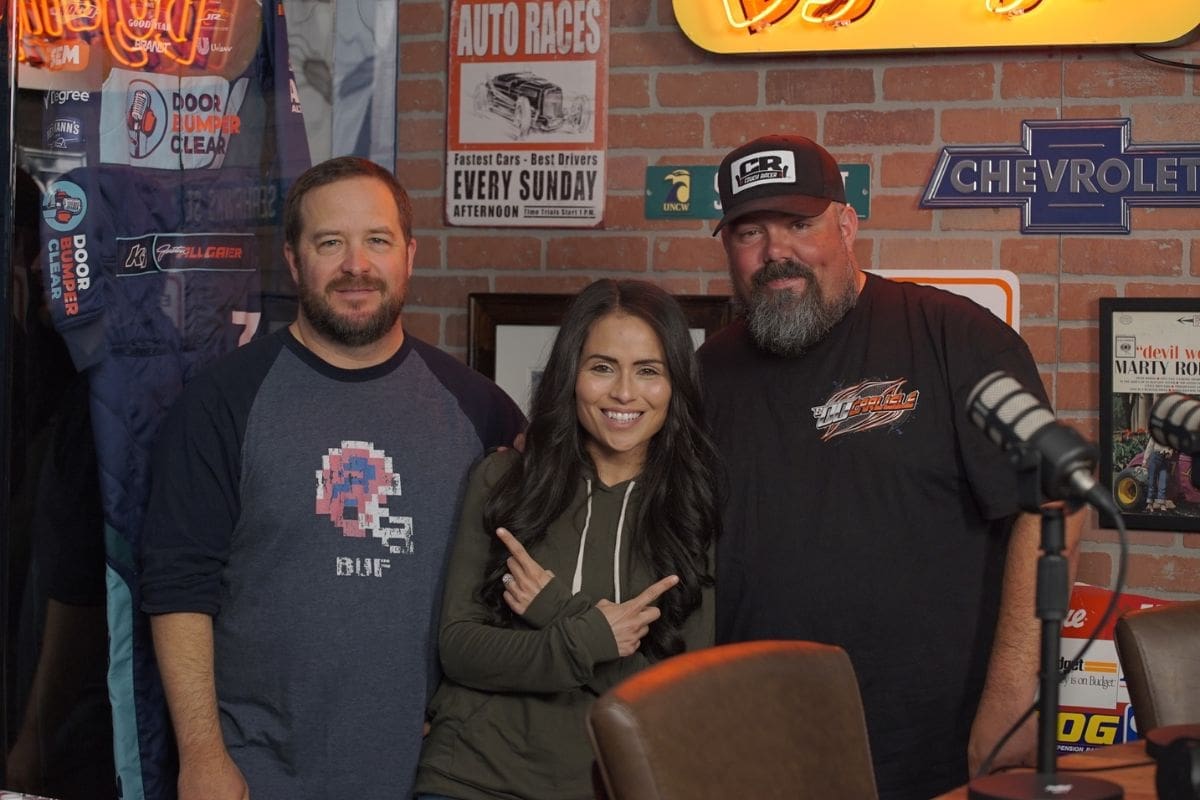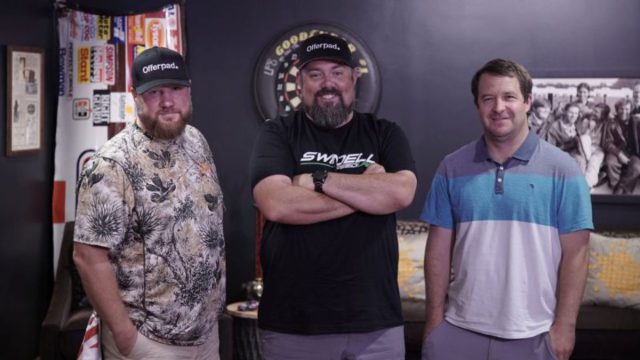Freddie Kraft Warns NASCAR: In NASCAR, the recent dominance of Hendrick Motorsports and Joe Gibbs Racing has sparked a critical dialogue, catalyzed by Freddie Kraft’s stark warning. As these teams continue to outperform rivals through advanced technological integration and refined strategic expertise, the disparity in competition threatens to skew the sport’s foundational principle of equal opportunity for victory. Kraft’s pointed critique not only highlights an emerging crisis in competitive balance but also challenges NASCAR’s governing bodies to recalibrate regulations to foster a more level playing field.
Key Takeaways
- Freddie Kraft warns that non-JGR or HMS teams may enter panic mode due to their dominance.
- The dominance by HMS and JGR could deter fan engagement and affect NASCAR’s overall competitiveness.
- Kraft suggests that radical reevaluations of competition policies are needed to ensure competitive parity.
- Despite standardization with the Next-Gen car, HMS and JGR excel due to superior resources and rapid development.
- Kraft’s concerns highlight the necessity for NASCAR to address strategic and technological disparities among teams.
Next-Gen Car Disparity
Despite NASCAR’s introduction of the Next-Gen car aimed at leveling the playing field, Hendrick Motorsports and Joe Gibbs Racing have continued to dominate, raising questions about the efficacy and equity of the new model. This trend highlights a critical observation: mere standardization of equipment does not necessarily neutralize the advantages held by powerhouse teams. The Next-Gen car, designed to be competitive through standardized parts and specifications, seemingly has not bridged the performance gap as anticipated.
The persistent success of Hendrick Motorsports and Joe Gibbs Racing can be attributed to several factors beyond mere car configuration. These teams have substantial resources which allow for effective exploitation of the Next-Gen car’s capabilities. This includes top-tier engineering staff, state-of-the-art simulation technologies, and the ability to attract the best driving talents.

Concerns Raised by Bubba Wallace’s Spotter
Freddie Kraft, Bubba Wallace’s spotter, has issued a stark warning that non-JGR or HMS teams should enter ‘panic mode’ given their current dominance in NASCAR’s non-drafting tracks this season. This statement highlights a growing concern within the sport about competitive balance and performance disparitites that are not just troubling but potentially damaging to the sport’s integrity and viewer engagement.
Kraft’s alarming comments reflect a broader anxiety that the competitive playing field in NASCAR has skewed disproportionately in favor of Hendrick Motorsports and Joe Gibbs Racing. This dominance is not merely about winning races, but about the implications it holds for other teams, especially those sharing the same manufacturer but not experiencing similar success. Teams like Trackhouse and Legacy find themselves in an uncomfortable spotlight, wrestling with the realization that despite having access to ostensibly similar technology and resources as HMS and JGR, their performance lags significantly.
“I think everybody that’s not in a JGR or HMS car probably needs to panic because they’ve won every non-drafting track this year. Obviously, Ford wants to be better but should you be more concerned if you’re a team like Trackhouse or Legacy whose running the same manufacturer, technically supposed to be the same car as HMS and JGR and you’re not performing.” – Kraft
Dominance of HMS and JGR
The dominance of Hendrick Motorsports and Joe Gibbs Racing in NASCAR’s non-drafting tracks has become a pivotal concern for the sport’s competitive balance and the viability of its diverse team ecosystem. These two organizations have set a benchmark that is seemingly insurmountable for other teams at the moment, particularly in scenarios that test pure racing mettle and strategic expertise on non-drafting circuits.
Analyzing their success, it’s evident that HMS and JGR have excelled in areas of advanced aerodynamics, engine performance, and pit crew efficiency. These elements are critical on non-drafting tracks where the reliance on slipstreaming is reduced, and the emphasis is squarely on the car’s and driver’s ability to perform independently on the tarmac.
Contrastingly, other teams like Trackhouse Racing and Legacy Motor Club have struggled to find their footing in these conditions. Despite having access to similar Chevrolet and Toyota machinery, these teams have not demonstrated the same level of performance. For instance, notable drivers such as Ross Chastain and Daniel Suarez from Trackhouse Racing have only sporadically challenged the front-runners, often lacking the sustained pace to genuinely contest HMS and JGR.
“Ross (Chastain) hasn’t been up there in the mix; maybe a couple of races here and there but not showing great speed, Daniel hasn’t shown great speed. The Legacy cars, they’re kind of mid-pack at best. So I don’t know…Ford has to be worried and so does everyone that’s not in those 2 organizations.” – Kraft
What a weekend for @JoeGibbsRacing. 🙌 pic.twitter.com/m7HtFEvFPZ
— NASCAR (@NASCAR) April 29, 2024

Discussion on NASCAR’s Competitiveness
Given the current landscape, NASCAR faces a crucial challenge in boosting the competitiveness across its teams to mitigate the overwhelming dominance of Hendrick Motorsports and Joe Gibbs Racing.
- Equitable Resource Distribution: Ensuring that smaller teams have access to sufficient resources, including technology and expertise, to compete effectively.
- Regulation Adjustments: Revisiting the current rules and regulations to find a fair balance that doesn’t disproportionately benefit the more prosperous teams.
- Development Programs: Enhancing support for driver development programs to cultivate talent that can challenge the established stars of Hendrick Motorsports and Joe Gibbs Racing.

News in Brief: Freddie Kraft Warns NASCAR
The prevailing dominance of Hendrick Motorsports and Joe Gibbs Racing in NASCAR has shown a critical disparaties that threaten the competitive integrity of the sport. It is important for NASCAR to implement strategic measures aimed at leveling the playing field, thereby enhancing the competitive dynamics and spectator interest.
By addressing these performance disparaties, NASCAR can sustain its reputation and guarantee a fair, engaging competitive landscape that honors the spirit of racing and the diverse capabilities of all participating teams.
Also Read: Cole Custer’s Odd Celebration Baffles Freddie Kraft
